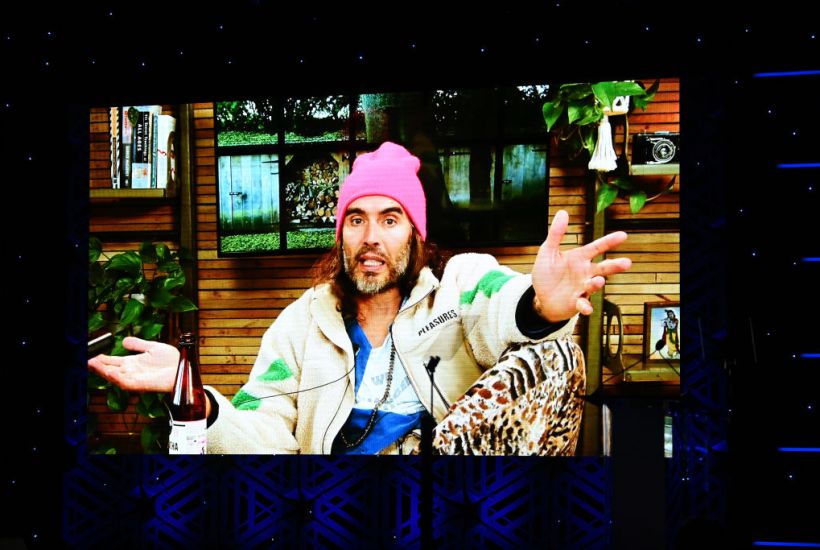We must have the most unprincipled, illiberal crop of politicians ever to grace Westminster. Within hours of the House of Lords passing the Online Safety Bill, clamping down on freedom of speech online, Caroline Dinenage, chair of the House of Commons Culture, Media and Sport Committee, seemingly decided that due process should be next on the chopping block.
Yesterday, Dinenage wrote a letter to Rumble, a free-speech alternative to YouTube, demanding to know if Russell Brand was making any money from the videos he posts on the platform – and if so, whether or not the company was considering cutting that money off. Under the letterhead of her committee, sporting the emblem of the House of Commons, she effectively demanded that this tech firm deprive an alleged criminal of its services.
Following the appalling allegations against Brand, which include multiple acts of rape and sexual assault (which he denies), unearthed through a four-year joint investigation between the Sunday Times, the Times and Channel 4’s Dispatches, YouTube ‘demonetised’ all of his videos, starving the actor-turned-conspiratorial-influencer of one of his key sources of revenue. Now, Dinenage seems intent on making sure that other sites follow suit. (She’s also written to TikTok, Facebook and the platform formally known as Twitter.)
So, prominent politicians are now firing off menacing letters to companies, insisting they financially punish particular individuals, purely because those individuals have been accused of a crime. However appalled or sickened or convinced you may be by the allegations against Brand, we all need to call out Dinenage’s letter for what it is: an affront to the presumption of innocence that could easily set a dreadful, vengeful precedent.
This really should go without saying, but in this febrile climate it’s worth spelling it out. To say that Brand is innocent until proven guilty is not to say that he has no case to answer, or that his accusers are definitely lying, or that – as many of his online fanboys seem to think – this is all some elaborate WEF stitch-up. Brand undoubtedly has a case to answer. The investigation into his behaviour has produced not only shocking allegations, but striking circumstantial evidence, too. Claims as serious as these should be tested in court.
But here’s the thing. They are still just that – allegations. As thorough as a journalistic exposé might be, as diligent as the journalists might be, we cannot simply skip to dishing out the punishments. To do so would be utterly unjust. However you dress it up, what YouTube has done, and what Dinenage is now calling on other platforms to do, amounts to punishing someone on the basis of accusations alone. You do not have to be a cynic to see that this mechanism could all too easily be abused.
After all, in the not too distant past, a string of men in public life were accused of appalling sexual crimes, only to be completely exonerated. Cliff Richard, one of the most prominent targets of false allegations during the elite-paedophile panic of a decade ago, was accused by five men of historic child abuse. Are we suggesting he should have been similarly, instantly, unpersoned? Should MPs have written to his record label, demanding that his royalties be cut off?
The presumption of innocence may be a strictly legal right, but the awful treatment of Richard, Harvey Proctor, Paul Gambaccini and others reminds us that it is also a principle we should endeavour to live by. The alternative is to allow giant corporations, badgered by moralising MPs, to act as judge, jury and executioner.
Due process, like free speech, was incredibly hard-won, but is incredibly easy to give away. Especially when you have MPs as casually authoritarian as our own.
Got something to add? Join the discussion and comment below.
Get 10 issues for just $10
Subscribe to The Spectator Australia today for the next 10 magazine issues, plus full online access, for just $10.




















Comments
Don't miss out
Join the conversation with other Spectator Australia readers. Subscribe to leave a comment.
SUBSCRIBEAlready a subscriber? Log in